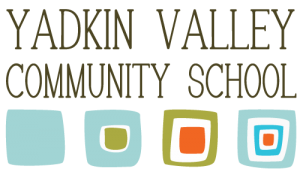In the elementary class, students have many practical life lessons including preparing snacks, sewing, hammering and much more. In the middle school class, students also do many of the same practical life lessons, but on a more advanced level.
New this year, the Real Life Challenge was introduced to 6th through 8th grade students. This lesson includes:
1. Finding a career, researching education requirements and salary,
thinking about the entry level pay that would come with a career straight out of college
2. Calculating monthly gross pay by taking out state and federal taxes, social security, retirement, and health insurance to find out net pay
3. Finding a house/apt to rent
4. Finding a car to buy and calculating monthly payments
5. Budgeting for savings account, rent, car payment, car insurance, renter’s insurance, electric bill, water bill, gas for car, phone, cable, internet, food, and student loans
“I really enjoyed learning about budgeting. It was eye-opening, and I think it will help me a lot later on in life. And I learned how much I would need to earn and save to be able to afford an apartment on my own (without a roommate).”
-7th grade student
Highlights of this exercise include:
- The difference in gross pay and net pay had a big impact on the students. They were amazed with how much was taken out of their paycheck.
- Quickly, the kids realized they couldn’t have the newest, coolest cars because they couldn’t pay the monthly payment or the insurance.
- Many students decided to partner up with a classmate to have a roommate so they could split the cost of rent and utilities.
- Students were also taught how to write business letters, and students wrote a letter as if they were working in the career they picked. For example: a photographer wrote a letter to a company for a delay in shipping of supplies and a lawyer wrote a business letter to a client clarifying an appointment.
- To make things a little more interesting (and realistic), students also drew “life cards” periodically. These cards represent day to day occurrences, both good (earned an extra $125 working overtime) and bad (had to buy a new $100 tire for the car).
- Guest speaker, Mark Cook, talked to the kids about retirement, 401k, credit cards, compound interest, scholarships, car loans, stocks and mutual funds. He gave them three steps to follow:
1-Work hard.
2-Pay yourself first.
3-Save wisely.

“A person’s net worth has nothing to do with their self worth.”
“The value of the portfolio has nothing to do with the value of the person.”
Still to come…
- A meal planning lesson will help kids learn to plan for a week of meals, shop grocery ads for best deals and budget for food after meal planning.
- A guest speaker to teach us about unit rates and best buys in groceries. Then students will visit Food Lion to “shop” for groceries.
- Guest speakers from local banks will come to discuss checking accounts, savings accounts, loans, and student account options.
